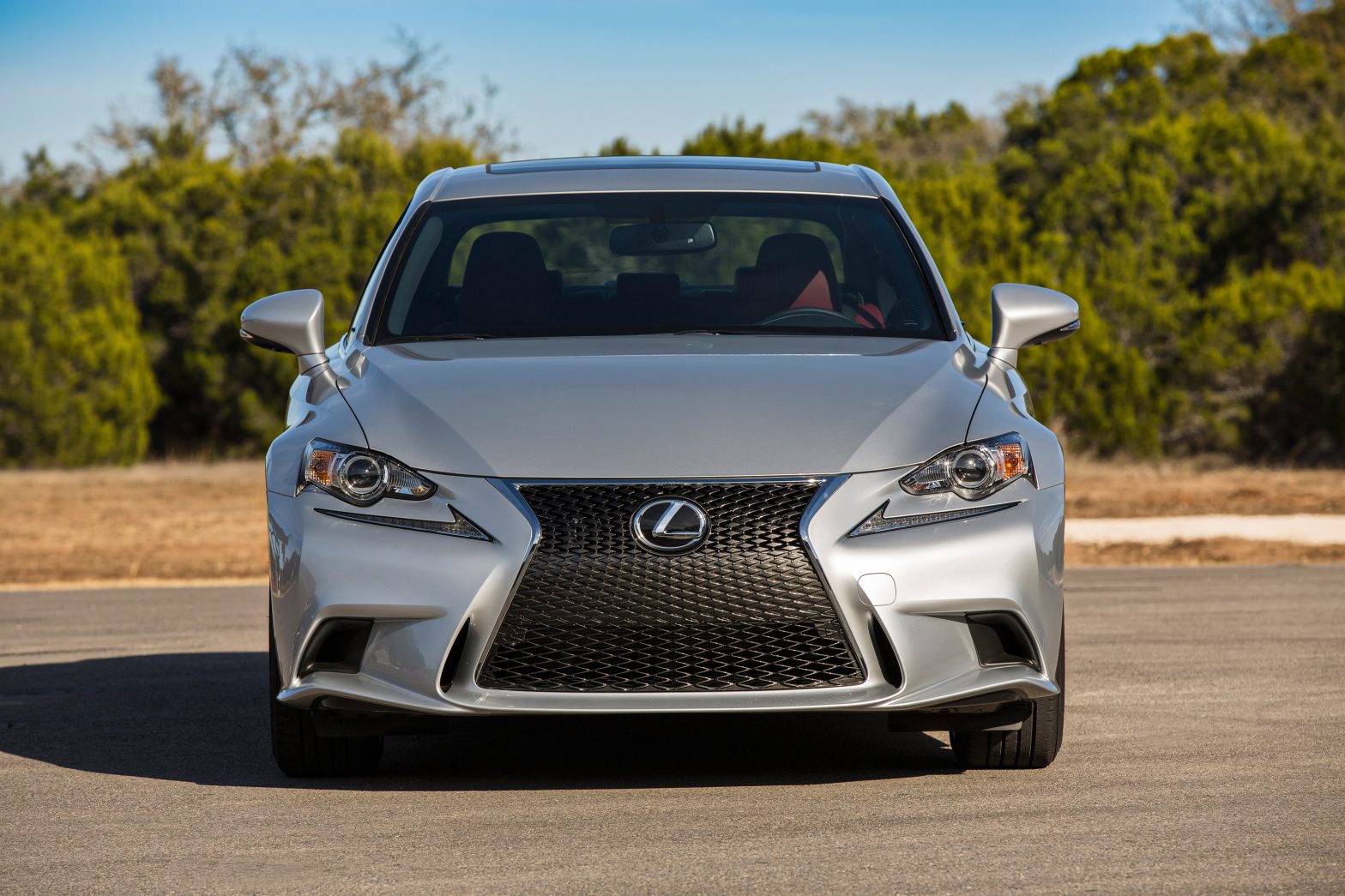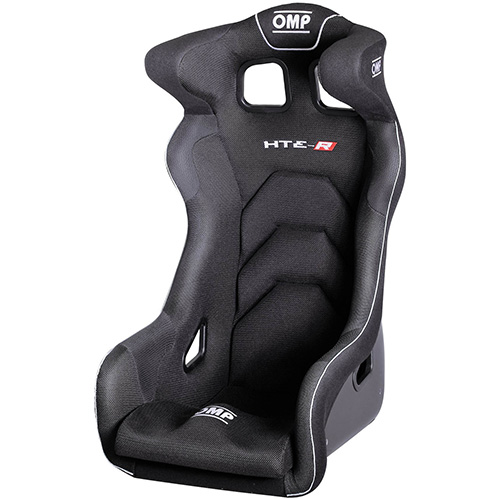Remember what we said yesterday about teasers in our preview of the
Hyundai HCD-14 Concept? Well, the other side of that token is illicit leaks. The latest victim is the all-new Lexus IS, which was leaked on a Chinese website, before being picked up by Speed:Sport:Life’s Twitter account. After posts by other publications, Lexus has finally just said “To hell with it,” and released a press release and some hi-res images of the 2014 IS.
Our first reaction? It looks like it was styled by an angry man with a samurai sword. That isn’t a bad thing. It’s exactly the sort of aggressive design we’ve been waiting for from Lexus, and there’s perhaps no more important of a vehicle for it to appear on than one that’s meant to do battle with the
Cadillac ATS and
BMW 3-Series.
The front fascia is the most aggressive iteration of Lexus’s “spindle grille.” Its sharp angles are flanked by a pair of LEDs that are actually separate from the headlights themselves. It stays far more true to the concept car that previewed it, the
LF-LC, than we thought it would. The taillights dive aggressively away from the centerline of the car, forming the latter part of a character line that extends up from the rocker panels.
The interior is more driver-centric than the last IS. The instrument cluster and steering wheel on this F-Sport model is heavily influenced by the LF-A supercar. Overall, we’re quite excited to see the new IS in person.
The press release doesn’t mention specifics on powertrains, but we do know that there will be an IS250 and an IS350, both of which will benefit from F-Sport trims. The 2014 IS will also be getting a hybrid variant, called the IS300h.
We’ll have full details when the IS makes its live debut on Tuesday, January 15 in Detroit.
Please scroll down for the official press release from Lexus.
Lexus Releases First Official Photos of the Next Generation IS
All-new exterior featuring Lexus spindle grille design and Lexus-first independent L-shaped Daytime Running Lights (DRL)
New interior design with LFA-inspired, driver-focused cockpit
F SPORT exclusive interior/exterior features
TORRANCE, Calif. (Jan. 9, 2013) – The all-new Lexus IS compact sport sedan will make its world debut at the North American International Auto Show in Detroit on Jan. 15, 2013. A press conference will be held in the Cobo Center at 9:30 a.m. EST, and live webcast streaming of the event will be available at www.lexus.com and on the Lexus Facebook page.
The all-new IS model range will include IS 250, IS 350, and the first IS to feature Lexus Hybrid Drive, the IS 300h, which will be available in Europe, Japan and other international markets. F SPORT models will be available across the full range. Today, Lexus released photos of the all-new IS 250/350 F SPORT in advance of next week’s World Premiere.
Exterior Design
The all-new IS features the new Lexus spindle grille frontal design, awarding the compact sedan a combination of aggressive elegance, a more powerful road presence and a stronger brand identity.
The tight, sporting proportions of the body are formed by powerful character lines generated by the shape of the spindle grille, which passes through the base of the A-pillars then tightens up as it flows toward the rear. They clearly delineate the body from the cabin, emphasizing the wide flare of the wheel arches to give the new IS a broad, powerful stance.
In profile, the strong horizontal beltline shows off the large rear tires and its low center of gravity. The mass of the cabin itself is concentrated rearwards, visually applying weight to the rear tires to enhance the perception of traction.
A rising crease line flowing from the lower body, through the rear wheel arch and into the rear lamp clusters adds the sweeping elegance to the sedan’s sporty profile.
The exterior design incorporates a new, powerfully articulated headlamp cluster design with Lexus trademark, L-shaped Daytime Running Lights (DRL) located independently below.
F SPORT models are instantly recognized by an exclusive grille and front bumper design. The ‘waistline’ of the grille is higher than on standard models, increasing the area of the lower grille to make it capable of drawing in a larger volume of cooling air appropriate to sporty performance.
Interior Design
The new IS interior design creates a focused, ergonomically ideal environment from within, which the driver can fully exploit the new Lexus compact sedan’s superb driving dynamics.
The new IS’ increased width and longer wheelbase provide significantly improved rear seat comfort. The combination of the extended wheelbase and a thinner front seat design generates best-in-class knee room and improved accessibility. And new, 60:40 split/folding rear seats, provide expansive luggage capacity.
Cabin material, trim and finish refinement is complimented by the latest advances in HMI technology and a high quality analog clock with surface-emitting illumination. The center console incorporates Lexus-first, electrostatic switches to control the air conditioning temperature with the touch of a finger.
Both the seat hip point and the angle of the new, LFA-inspired steering wheel have been lowered and steering reach adjustment increased, creating a more sporting driving position. F SPORT models feature the LFA’s innovative driver’s meter with a moving center ring.
F SPORT trim detailing includes a perforated leather finish to the steering wheel and shift knob, metal film 3-D-effect ornamentation, black seat stitching, and aluminium pedals and scuff plates.
A choice of three F SPORT interior color schemes includes a new Rioja Red finish, which is exclusive to the marque.
DRIVING IMPRESSIONS
Which brings us neatly to the 2014 Lexus IS and Michigan International Speedway. We had seat time in the entire range of 2014 models, but focused our efforts on the stunning white IS F-Sport you see above.
While there’s plenty of new stuff with the 2014 IS, the engines are not one of them. The base is an underpowered 2.5-liter V-6, which delivers a meager 204 horsepower and 185 pound-feet of torque. It’s outgunned by nearly every 2.0-liter, turbocharged four offered by its competitors. That last sentence is reason enough to avoid the IS250.
Instead, we focused on the sole competitive engine, the 3.5-liter V-6 from the IS350. Producing 306 horsepower and 277 pound-feet of torque, the IS350 is right in the wheelhouse of the six-cylinder competition from BMW, Cadillac, and Mercedes-Benz. Paired exclusively to an eight-speed automatic, the 3.5 in the IS350 can send its power to either the rear wheels or through an all-wheel-drive system. With the back wheels spinning, the IS350 turns past 60 miles per hour in 5.6 seconds, while the AWD model takes an extra tenth.
The 3.5-liter V-6 is a familiar engine, being used in a variety of other Toyota products. It feels well suited to a small, luxury/sport sedan like this, though. The use of an intake sound generator inspires the driver from the behind the wheel, while the exterior exhaust note sounds sporty and smooth.
Power delivery differs from the
GS350, as the IS offers better low-end performance. We’d chalk this one up to the IS being a lighter car, although the new gearbox also bears some responsibility. Performance is brisk up to the 4800-rpm torque peak, but the IS doesn’t feel quite as potent as it stretches to its 6400-rpm horsepower peak. We found the best performance on our drive route came around 4000 rpm, where we could easily exploit the readily available torque.
The eight-speed auto in the IS350 is nearly a straight-swap from the
second-generation IS-F, which had us worried. The biggest fly in the ointment of the IS-F driving experience was its dimwitted gearbox, so you could imagine our apprehension about Lexus using this transmission in another car. Our concern was unwarranted, though, as the 8AT exhibited far better behavior in this lower-key vehicle.
Left in automatic, upshifts were unsurprisingly crisp. Downshifts, though, were the area of greatest improvement. There’s less hunting for gears, with the right cog being served up with little waiting. This is largely down to a new system called G-Force Artificial Intelligence, which as its name denotes, measures g-forces being exerted on the car, plugs them into an algorithm, and figures out which gear to have ready. It essentially allows the car to anticipate and set up for an upcoming turn. The result is a gearbox that went from “unlikable” in one car to “pretty good” in another. Manual mode is still a bit of a bore, as the shifts aren’t noticeably faster, but it’s not a bad system to use.
Ticking the $3620 F-Sport option box adds a number of tweaks, with one of our favorites being the excellent sport seats. The deeply bolstered thrones are snug and certainly got us in the spirit for some sporty driving. Surprisingly, the deep, aggressive bolsters don’t have an impact on ingress and egress. Their overall shape reminds us of a bespoke racing seat, but we’re guessing these will be considerably more comfortable over the long haul. The tight confines have us thinking that those beyond a 38-inch waist won’t be enjoying life quite so much, though.
In a brilliant move, Lexus took a dose of inspiration from the LF-A supercar and gifted the IS F-Sport with a reconfigurable, graphical instrument cluster. It’s gorgeous, as you can see in our POV driving video. In a segment that appeals so heavily to a buyer’s emotions, this is just the sort of item a car needs.
The exterior styling treatments of the F-Sport are subtler, in part because this is such an aggressively penned car in the first place. The front grille has been swapped out, while the front fascia is now home to larger cooling elements. Chunky ten-spoke, 18-inch wheels, inspired by the LFA, are wrapped in Bridgestone tires.
The F-Sport package is not merely a styling option. Lexus has put some hard mechanical work in to its sportiest IS, with the core of the changes coming to the suspension and chassis.
The Drive Mode Select system, which essentially controls all the suspension bits and bobs, gets a dedicated Sport + mode. Regardless of trim, the IS offers a Normal mode, an Eco mode that tweaks the powertrain and climate control for better mileage, and a Sport mode, which sharpens the throttle response and steering.
Sport + takes the IS systems to 11. The powertrain electronics are tweaked even further, with a sharp throttle response and more aggressive transmission timing. The F-Sport’s standard Adaptive Variable Suspension is put in its firmest setting, while the assist level of the electric steering is adjusted even further. Finally, cars with the Variable Gear Ratio Steering (like our tester), receive a specific set of ratios to work with, improving steering response.
The Adaptive Variable Suspension system has been plucked from the GS F-Sport, and promises an excellent blend of comfort and performance. Also available from the GS is the Variable Gear Ratio Steering system. In conjunction with the AVS, VGRS can manage the steering angle and adjust ratios based on the vehicle’s speed, the driver’s inputs, and the road conditions.
Thanks to these new systems, the F-Sport feels decidedly more poised and easy to handle. Roll is controlled, arriving in a progressive, predictable manner. The IS feels quite balanced, as well, handling high-speed transitions without a great deal of effort. It isn’t particularly compromised, though. With the AVS system, outside of Sport +, the ride is composed and relaxed. The IS can soak up most road craters without too much of an impact on overall comfort.
The steering, with the VGRS system set to Sport +, is quite tight and sporty. It feels good to wind through the bends, with a linear, predictable response. Get too far away from center, though, and feedback seemingly drops off, which isn’t great for mid-turn confidence.
And in general, that’s the IS’s biggest issue. While it is a lot of fun to wheel around, it lacks the level of feedback that is exhibited in a 3-Series or ATS. Throw it into a bend, and you can figure out grip levels and whatnot, but it doesn’t feel as transparent or obvious.
Other mechanical add-ons include dedicated F-Sport brakes, with 13.1-inch vented rotors in front, and 12.2-inch vented discs in the back. The pedal doesn’t feel particularly different going from a standard IS to an F-Sport, with similar levels of effort required to slow down.
The 2014 IS350 starts at $39,465 in rear-drive trim. All-wheel-drive models will start at $41,700. Adding the F-Sport package adds $3620 to the rear-drive IS350 and $3180 to the AWD models. Other options include a $2085 navigation system, a $3225 navigation system with a Mark Levinson stereo, $400 for the Variable Gear Ratio Steering, and $935 for 18-inch wheels.
The 2014 IS, while not the driving equal to the Cadillac ATS and BMW 3-Series, is a highly competent sport and luxury sedan. If you’re really looking for the best driver’s car, it might not appeal to you, but if you want a well-rounded sedan that can do the sporty thing without a lot of effort, this will be a compelling option.
2014 Lexus IS350 F-Sport RWD
Engine: V-6, 3.5 liters, 24v
Output: 306 hp/277 lb-ft
0-60 MPH: 5.6 sec
Top Speed: 143 mph
Fuel Economy, City/Hwy: 19/28 mpg
Base Price: $43,085
VIDEOS



















